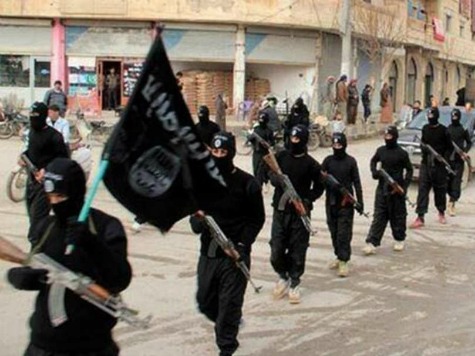John Yoo, former legal counsel to the George W. Bush White House, weighed in on President Obama’s unilateral authority to go after the Islamic State terrorist group without requesting congressional approval.
Despised by the Left, Yoo is best known for authoring what is now referred to as the “Torture Memos,” which gave the legal basis for the use of enhanced interrogation on terrorists.
Yoo writes in Ricochet:
President Obama’s “strategy” for fighting ISIS — announced in his speech last night — is coming under fire from conservatives for lacking legal authority. I worry that they are allowing their short-term political opposition to Obama and his foreign policy to overcome the longer-term interest in preserving the powers of the Presidency. On the other hand, President Obama could easily get congressional approval, but he is squandering the executive’s powers so he can pursue a half-hearted, lower-intensity, regulatory approach to the tough business of war.
Yoo explains that by no means is he saying that he agrees with the policy, but he stands by its legal justification:
Good legal authority is no guarantee for good policy. Just because the speed limit is 65 mph. doesn’t mean everyone should drive 65 all the time, no matter the conditions. Personally, I find President Obama’s speech last night to have lacked any overall strategic vision. His policies — air strikes, coalition military support, and aid — are tactics designed to contain ISIS, but are not a strategy on how to defeat ISIS and pacify the region.
The former Bush legal counselor gives three examples of ways President Obama can provide legal justification for his unilateral actions.
The first measure of legal authority falls within Article II, Section 2 of the Constitution. Yoo explains:
The President is Commander-in-Chief of the Armed Forces. He is also vested with all of the executive power of the federal government. This has long been understood to allow the President to initiate military hostilities to protect the national security of the United States. Almost no one questions whether the President can respond to sudden attacks on the United States, and most agree that this includes strikes that anticipate an attack (such as if we had struck the Japanese fleet on its way to Pearl Harbor). This power should also allow the President to attack countries and terrorist groups to prevent them from harming the U.S., even if an attack is not imminent.
According to Yoo, the second form of legal justification is through the 2001 Authorization to Use Military Force (AUMF), which states:
The President is authorized to use all necessary and appropriate force against those nations, organizations, or persons he determines planned, authorized, committed, or aided the terrorist attacks that occurred on September 11, 2001, or harbored such organizations or persons, in order to prevent any future acts of international terrorism against the United States by such nations, organizations or persons.
Lastly, he argues, the AUMF, passed to enter Iraq in 2002, is the third form of legal basis for the President’s justification to unilaterally go after the Islamic State terror group.
Yoo writes, “Even if the 2001 AUMF did not apply, the Authorization to Use Military Force in Iraq, passed by Congress in October 2002, provides more direct legal support.”

COMMENTS
Please let us know if you're having issues with commenting.